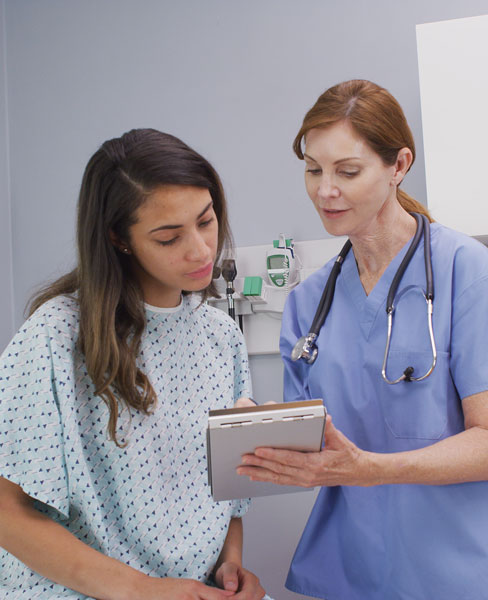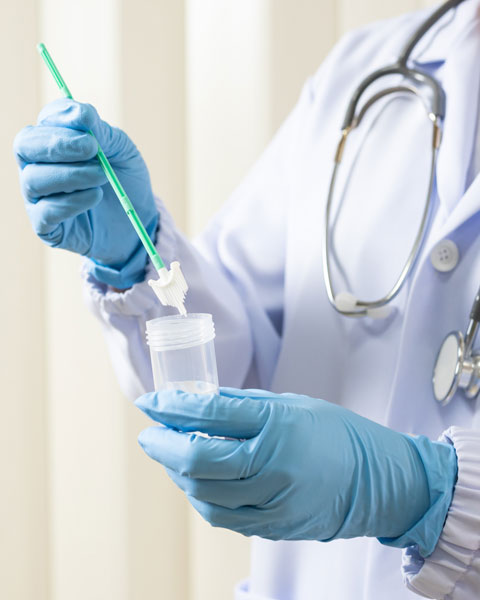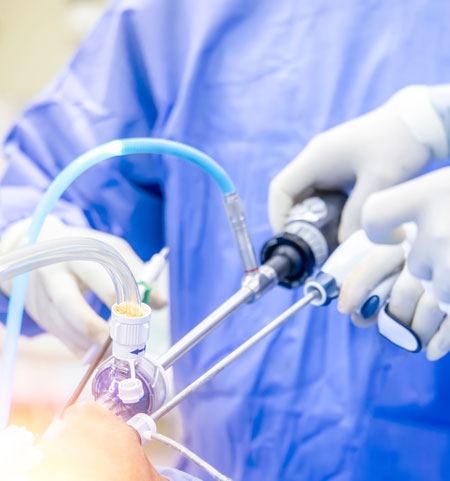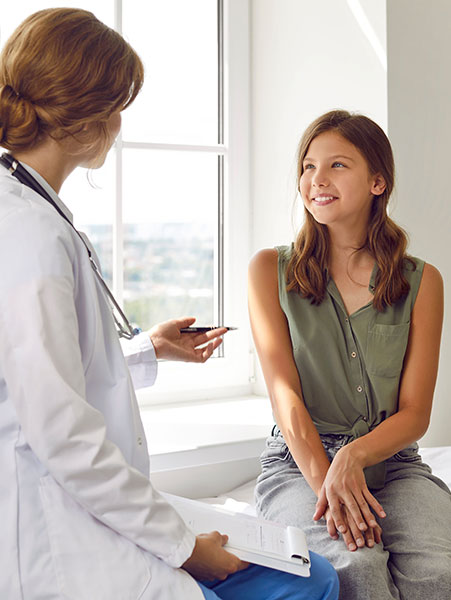Gynecology
From adolescence through menopause, Charleston OB/GYN offers its patients a variety of services. Check them out below.
Services offered at Charleston OB/GYN
Annual Exams
Annual exams are an important part of a healthy lifestyle. During an annual exam a full medical history will be obtained along with a physical exam and discussion of any problems. Ways to maintain and improve your health will be discussed with your provider.
Most annual exams will include a pelvic exam and Pap smear if you are 21 or older. A pelvic exam includes inspection of the external genitalia, vagina and cervix, and an internal evaluation of the uterus and ovaries. Even women who have had a hysterectomy need an exam to evaluate their ovaries on a yearly basis. Pap smears may not be performed every year depending on the patient’s previous results and their current health status.

Testing & HPV
Charleston OB/GYN offers testing of all kinds to our patients. During your annual exam, we offer Pap smears as well as well-woman testing such as cholesterol profiles, thyroid profiles and testing for diabetes. Certain hormone levels could be tested depending on your medical needs.
Sexually transmitted disease testing is discussed and offered during visits to our office. These tests can be performed through a pelvic exam or a blood draw depending on your symptoms or risk profile.
When a Pap smear is abnormal, your provider might schedule you for a colposcopy. A colposcopy consists of a microscopic examination of the vagina and cervix. During this procedure biopsies may be obtained which can help your provider recommend the next appropriate step for you.
The Human Papilloma Virus (HPV) can be protected against through Gardasil, a vaccination that protects against the nine most common strands of HPV. HPV has been associated with cancer of the cervix, vagina, and vulva. HPV may also cause genital warts.
The HPV vaccine consists of three injections over a six-month period, and women ages 9-45 are encouraged to receive the vaccine. The cost will depend on your insurance coverage. These details will be provided to you prior to your vaccination.
For more information about Gardasil, visit www.gardasil.com.

Infertility
Difficulty getting pregnant is stressful for any couple. Our providers provide counseling and guidance as well as offer basic fertility testing to help overcome some of the obstacles that couples face.
The providers at Charleston OB/GYN are fully equipped to diagnose and manage fertility issues. Please feel comfortable to address your concerns at your office visit.

Contraceptive Options
Charleston Ob/Gyn offers many birth control options so you have a choice and can determine what is right for you.
This includes the pill, patch, and vagina ring. All of these could help regulate your menses and make your menses lighter or less painful. Some patients will not be good candidates for estrogen-containing methods so this is important to talk to your physician regarding these options!
This is a single hormone pill that is available to take around the same time every day.
This is a progesterone-only injection that is given every 3 months and can make menses very light to absent.
Currently, the only one in use is called the Nexplanon. This is a device that is placed underneath the skin of your upper arm and helps control periods as well as prevent pregnancy.
These are intrauterine Devices that are placed by your provider in the office. There are three progesterone IUDs that are effective anywhere from 3-8 years and also help make periods lighter and less painful. There is also an option for a non-hormonal IUD that can last up to 10 years.
This includes condoms, spermicides, withdrawal, and cycle tracking.
This includes laparoscopic tubal ligation for women and vasectomy for men (to be done by a Urologist).
These options include Plan B and Paragard IUD.
Minimally Invasive Surgery
The doctors of Charleston OB/GYN are happy to be able to offer a variety of minimally invasive procedures. These include hysteroscopy, diagnostic laparoscopy, laparoscopic treatment of certain conditions, including endometriosis and ovarian cyst, and laparoscopic or vaginal hysterectomy.

Menopause
Menopause occurs when women stop having monthly menstrual cycles. This typically occurs between the ages of 45 to 55. Some patients can experience hot flashes, painful intercourse, mood swings, night sweats, interrupted sleep, and irritability. These symptoms can be treated with hormone replacement therapy in some women. There are also non-hormonal alternatives for vaginal dryness and painful intercourse, such as lubricants or the MonaLisa Touch™.
Ask your provider more about Biote.

Adolescent Gynecology
We recognize the need for a young woman to have a positive first gynecologic experience to set the stage for a lifetime of healthy decision making. Young women can have a variety of problems that include irregular periods, heavy periods, painful periods, or absence of periods. Our providers can help diagnose these conditions as well as treat them medically. We also offer birth control and STD counseling. We strive to make our young patients feel as comfortable as possible as they begin this important process.

Frequently Asked Questions
For an extensive list of FAQs, visit the Patient Education FAQ site at the American College of Obstetrics and Gynecology.
